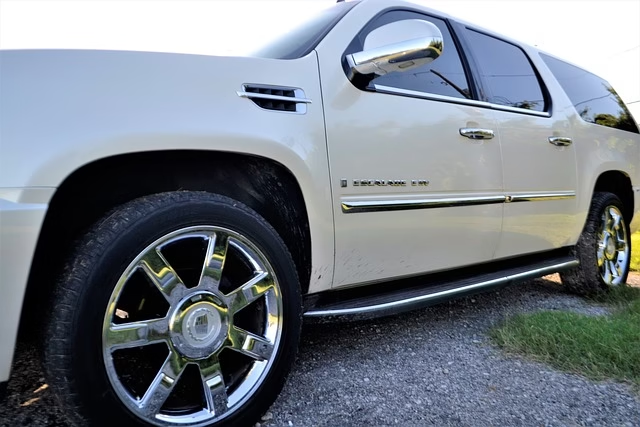New vs. Used: The Pros and Cons
Choosing between a new and a used cars can be overwhelming, as each offers unique benefits. New cars attract buyers with the latest technology, offering features that enhance comfort, safety, and connectivity. There’s an undeniable appeal to being the first owner, enjoying that new car smell and the security of a full manufacturer’s warranty. Nonetheless, these advantages come with a steeper cost. For individuals seeking to maximize value, pre-owned vehicles should not be overlooked. They allow buyers to bypass the steep depreciation of new cars in the first years of ownership. From Central Florida Dodge dealers to various online marketplaces, a wide selection of new and used vehicles is available to suit any budget or preference. Whether it’s the latest model fresh off the assembly line or a tried-and-true favorite from years past, the options are endless.
The decision-making process extends beyond mere preference. It involves weighing several key factors, including financial considerations, personal needs, and long-term objectives.
Understanding these factors is essential for making a smart purchase that suits both present and future situations.The insights provided help one understand market dynamics and recognize the practical benefits of each option. Such informed decisions can pave the way for a satisfying ownership experience tailored to individual lifestyles and goals.
Financial Implications
Regarding financial aspects, depreciation is a prime consideration. New cars typically experience a rapid depreciation rate, usually losing about 20% of their value within the first year of ownership. This significant drop in value can impact the overall cost of ownership if resale value is a priority. The vehicle’s value continues declining each year, slowly leveling out after several years. For this reason, those who prioritize investment and long-term savings might shy away from new cars. The decision becomes especially relevant where Car dealerships in Lakeland, FL, offer new and used options. Alternatively, the appeal of used cars often lies in their relatively stable depreciation rates. Because they have already experienced the steepest drops in value, used cars present a more financially stable investment. By opting for a vehicle that is a few years older, buyers can limit their exposure to depreciation, thus preserving more of their initial investment. Such considerations are crucial when planning either short-term use or long-term retention.
Exploring the Features
New cars lead the pack by introducing advanced safety features and sophisticated technology to enhance the driving experience. From features such as lane-keeping assistance and adaptive cruise control to voice-activated interfaces, the technology in new models transforms the driving experience. Meanwhile, infotainment systems are evolving to integrate seamlessly with smartphones, providing intuitive media and navigation solutions. However, these technological advantages do come at a premium. Used cars, even those a few years old, often have a significant portion of these features, albeit at a more economical price. Savvy buyers can secure vehicles with high-end features, upgraded interiors, and firm performance metrics without the higher cost associated with newer models. This balance of luxury and affordability makes used cars an appealing option for discerning buyers.
Environmental Considerations
Environmental considerations are becoming an increasingly important factor for many buyers. Brand new cars, while efficient, come at an ecological cost. The production process pressures natural resources and produces a substantial carbon footprint. Used cars, however, offer a more sustainable option based on their existing lifetime use. By driving a used vehicle, consumers can actively contribute towards reducing their ecological footprint. Continued use of existing vehicles is more eco-friendly than manufacturing new ones. This perspective highlights how used cars align with ethical consumer choices and offer practical economic benefits, striking a harmonious balance between personal transportation and global environmental stewardship.
Insurance and Maintenance Costs
The cost of insuring and maintaining a vehicle is another critical consideration when deciding between new and used options. Insurance companies often set premiums based on the cost of replacing a vehicle. Hence, new cars generally incur higher premiums due to higher market value and repair costs. In contrast, used vehicles typically result in lower insurance payments. Since these vehicles have a lower market value, the cost to the insurer decreases, which is reflected positively in the consumer’s insurance premiums.
Additionally, while new cars may initially benefit from fewer maintenance requirements, both new and used vehicles require care and upkeep over time. Importantly, repair costs for used cars often prove more economical. The availability of aftermarket parts and experienced mechanics familiar with standard models provides a cost-effective solution for maintenance and repairs, making routine upkeep more budget-friendly.
Long-Term Value
Assessing a vehicle’s long-term value involves examining reliability, brand reputation, and service history. These elements impact how well a car retains its value over time, particularly in terms of performance and resale potential. New vehicles may enjoy the cachet of being first-hand, often benefiting from heightened brand equity and technological advancements. However, some established models have a reputation for longevity and durability that carries well into their used life. For example, a well-maintained used car from a reliable brand can command a substantial resale value and offer consistent driving performance over an extended period. Suppose you want to understand a car’s potential long-term value. In that case, tools like the car value estimator from Consumer Reports can provide helpful insights based on factors such as the vehicle’s make, model, and condition; thus, whether new or pre-owned, long-term value can be preserved and optimized through careful maintenance, regular service, and diligent care.
Deciding Based on Personal Needs
Your car purchase should align with your lifestyle, priorities, and financial picture. A car is not just a means of transportation; it represents a significant investment and reflects your values and financial goals.
Some buyers find joy and satisfaction in owning a brand-new vehicle, relishing every mile passed in cutting-edge comfort and style. Others prioritize practicality and affordability, finding value in a pre-owned car’s reliability and economy. The key is recognizing what you need most and what you can budget for, ensuring that the selection provides comfort, functionality, and satisfaction. Whether you choose a new or used car, a thoughtful evaluation of your needs, preferences, and circumstances will lead to a rewarding car ownership experience.

